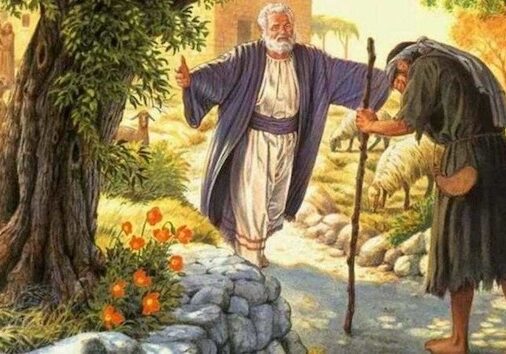Huh? What in the world is an oxymoronic paradoxical statement? This might be the first time anyone has ever asked this question in the history of the world. Not, “Huh?” The other one.
Paul made more than one oxymoronic paradoxical statement. However, one is found in 2 Corinthians 12:10, “For the sake of Christ, then, I am content with weaknesses, insults, hardships, persecutions, and calamities. For when I am weak, then I am strong.”
From a human perspective, this statement of Paul’s (along with what comes before and after) does not make sense. The idea is unreasonable. It is incomprehensible, inconceivable, implausible, and ludicrous. Not to mention mind-blowing. In other words, the message is oxymoronic and paradoxical.
A similar concept refers to someone (usually ourselves) as the low man on the totem pole. The statement is used to express a lack of importance. But the low man on the totem pole is the most vital of all above.
To understand Paul’s reasoning, we must step out of the realm of human reason and incorporate the mind of Christ.
Jesus said, “If you want to be great, learn to be the servant of all.”
To healthily accomplish these oxymoronic paradoxical statements, we must have a good understanding of the inferred third commandment. We put much emphasis on loving God, and rightly so.
To love God, we must love others, and to love others; we must love ourselves. To the extent we can love ourselves is the degree we can love others and ultimately love God. Only when we have a healthy understanding of who we are in Christ can we prefer others above ourselves.
It’s oxymoronic. It’s paradoxical. If you want to be strong in Christ, focus on being weak in self. John said it best, “He must increase, but I must decrease” (John 3:30).
I’m still on this journey. How about you?
You might also like these articles...
Guilt & Shame
Guilt & Shame Guilt and shame have terrible effects on a person, both spiritually and physically. When someone carries guilt and shame around, unbeknownst to others, it usually affects every part of their life. In Psalm 38, we find David struggling with this after sinning (which one is unclear). You can feel the pain and guilt of his…
Rejecting God’s Forgiveness
Is rejecting God’s forgiveness possible? “If we confess our sins, he is faithful and just to forgive us our sins, and to cleanse us from all unrighteousness” (1 John 1:9 KJV). “…There is forgiveness of sins for all who repent” (Luke 24:47 NLT). There is no doubt that God’s forgiveness is available to whosoever will.…
The Father’s Eyes vs. The Brother’s Eyes!
Luke 15:11-31 is the only place that records the story of the Prodigal son. There are three major players in this story: the younger son, the Father; and, the older brother. The younger son, full of talent and energy, is selfish instead of selfless. The Father, full of patience and longsuffering, is selfless instead of…




